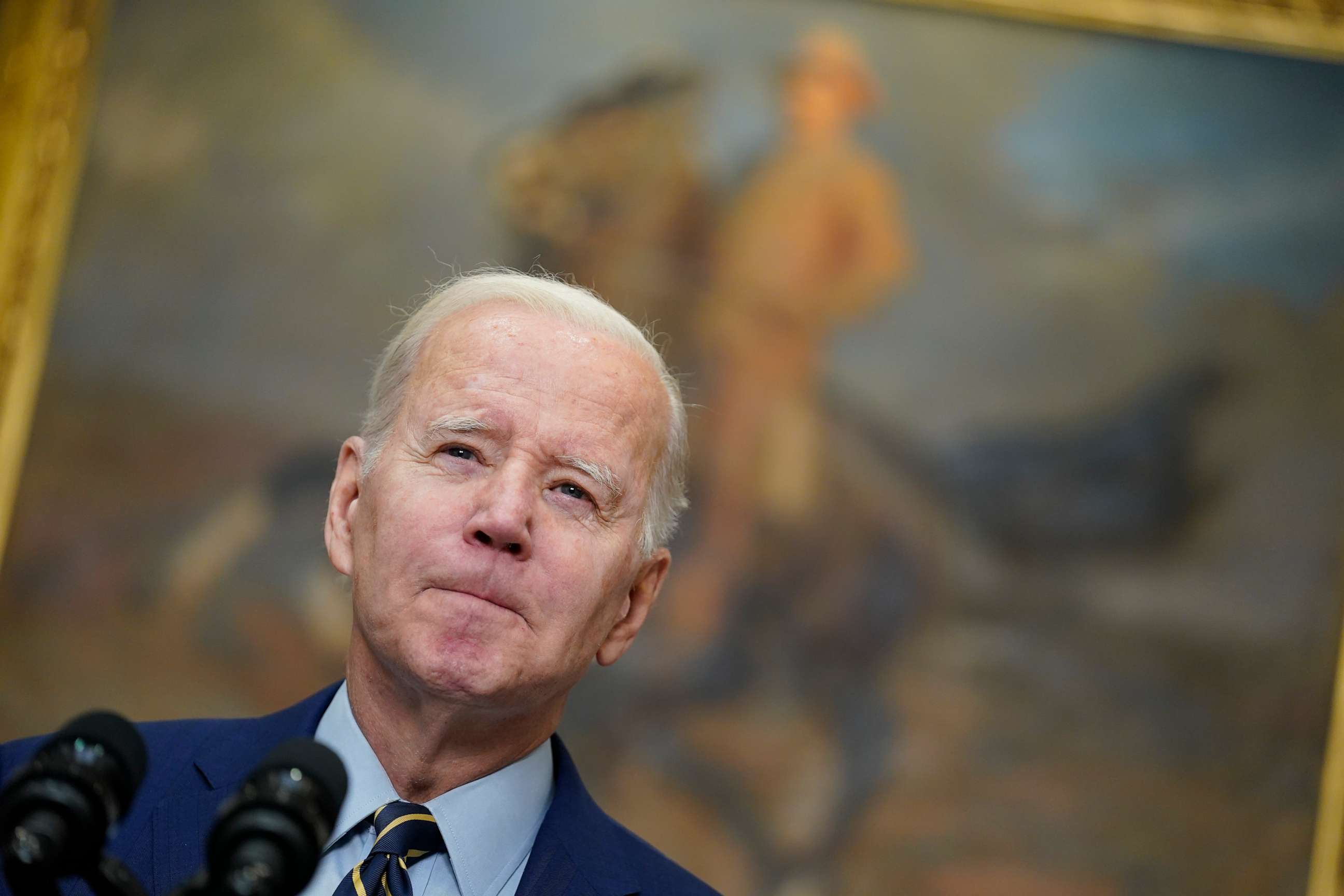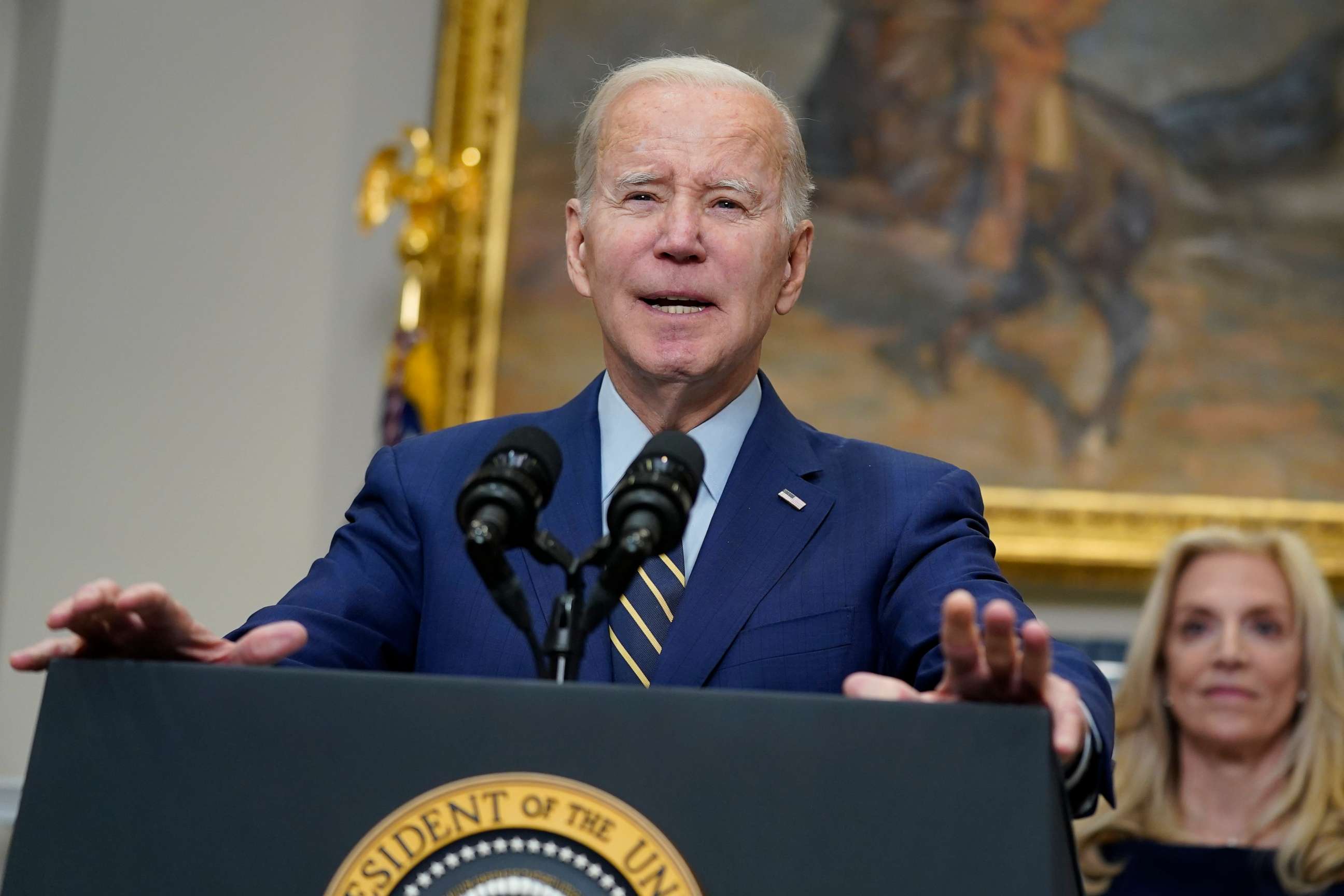Biden, GOP showing no signs of cooperation on budget as debt ceiling deadline looms
Biden offered his first reaction to cuts proposed by the House Freedom Caucus.
President Joe Biden and congressional Republicans appear no closer to reaching a deal on the 2024 budget to avoid a debt default, with the two sides taking swipes at each other Friday morning.
When touting Friday's jobs report, Biden suggested Republicans weren't capable of drafting a budget anytime soon and blasted a proposal from the House Freedom Caucus, just one day after presenting his budget plan which some Republicans say is "dead on arrival."
"I told the speaker, soon as he's about ready to lay out his budget, I'm willing to sit down. And now I'm hearing things like, 'Well, we're not going to have our budget till April or May maybe even June,'" Biden said from the White House. "Why all of a sudden can't they get it done in March, or maybe even April? Maybe even May?... It doesn't sound like on a level yet."
As lawmakers debate conditions for raising the debt ceiling, a course of action the White House has said should be "non-negotiable," the Treasury Department expects to exhaust its emergency measures sometime between July and September.

With that deadline looming, members of the ultra-conservative House Freedom Caucus outlined what they call a "blueprint" for spending restrictions on Friday that they say -- if agreed to -- would earn their votes for raising the debt ceiling.
The proposal, which is almost certain to face pushback from more moderate House Republicans, includes ending Biden's student loan forgiveness program, rescinding all unspent COVID-19 federal assistance, recouping the $80 billion allotted to the IRS in the Inflation Reduction Act, and freezing all discretionary spending at the FY2022 level for 10 years.
"President Biden, your budget is dead on arrival. Let me just go ahead and say that now," said Rep. Byron Donalds, R-Fla.
While the members were taking aim at Biden's proposal with their remarks, House Speaker Kevin McCarthy was a secondary target of the group's remarks. Almost all House Freedom Caucus members speaking on Capitol Hill just ahead of Biden's remarks were part of the faction that delayed McCarthy from obtaining the speakership, highlighting what just a handful of House Republicans can do amid a slim House GOP majority.
"You're going to see us make history again, in this new Congress," said Rep. Bob Good, R-Va., signaling they could vote as a bloc. "We're going to actually cut spending in a meaningful way and put us on a path of fiscal stability as a nation."

The speaker laid fault for the delay at the president's feet.
"Well, we were going to do the budget in April but unfortunately the president's so late with his budget, it delays our budget," McCarthy, who said he's waiting for Biden to invite him to the White House for another meeting, said when asked when he will release his budget proposal.
Back at the White House, Biden slammed the Freedom Caucus's promise to raise the debt ceiling only if 25% of all non-defense spending is cut.
"That means cops, firefighters. It means health care. It means -- that's what they call discretionary spending, as you all know. And, and on top of that, what they're really focused on that I saw here, I shouldn't get into all this now, but is kind of surprised me. They, they want to make sure we don't have enough IRS agents," Biden claimed.
"The idea that I'm going to agree that we start to figure out where we cut 25% across the board .... I don't know what there's much to negotiate on," he added.
White House press secretary Karine Jean-Pierre echoed his remarks, calling the House Freedom Caucus plan a "gut-punch to the American middle class."
"This is a blueprint for selling out the middle class, law enforcement, and American competitiveness," she said.
Biden's proposal includes $842 billion in defense spending, $6 billion in support for Ukraine to defend against Russia's invasion, a tax increase for high-earners and a $1.4 billion increase to Social Security, among other measures.

The president celebrated Friday's jobs report showing 311,000 jobs were added in February, and he painted a rosy economic outlook for the nation.
"People are moving back into work, but this may be the part that pleased me the most about the report, the jobs report, is people who've been staying out of the job market are moving back in, beginning to move back in. Jobs are available. People are working again. They're becoming more optimistic about their future," he said.
ABC News' Jay O'Brien, Sarah Kolinovsky and Lauren Peller contributed to this report.




